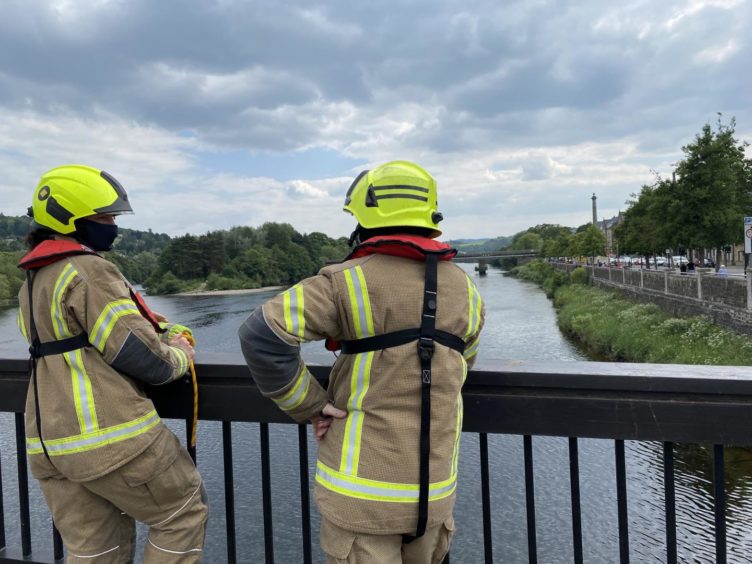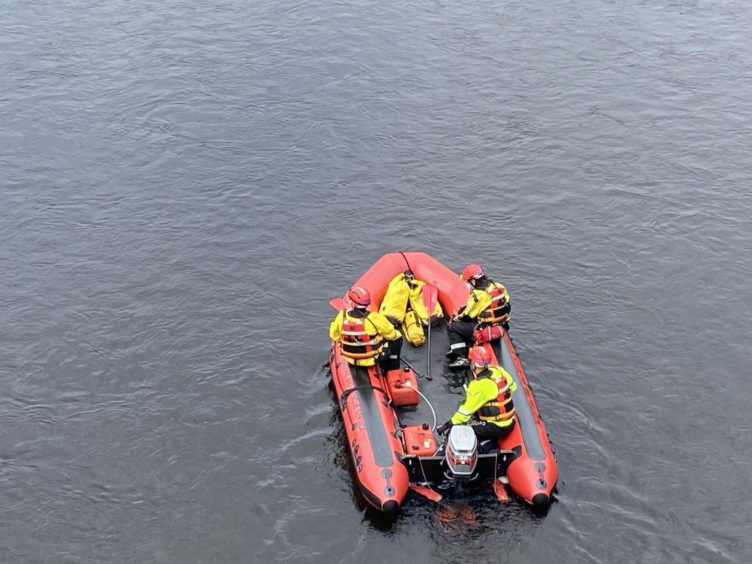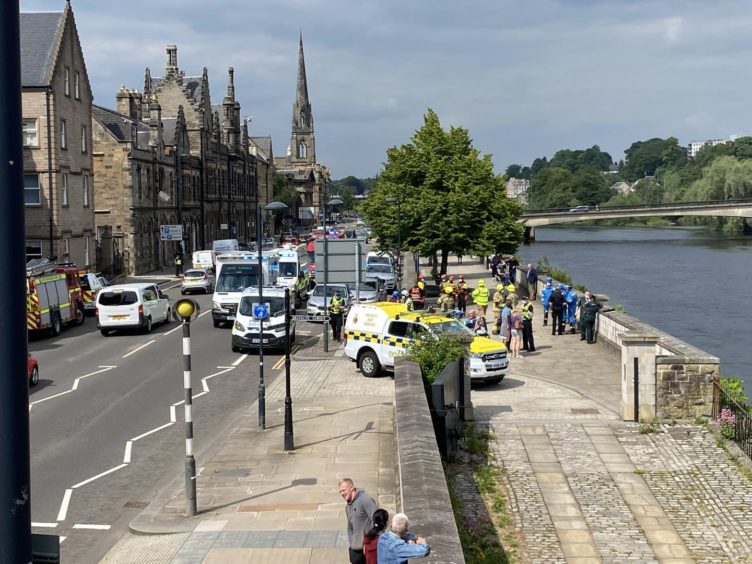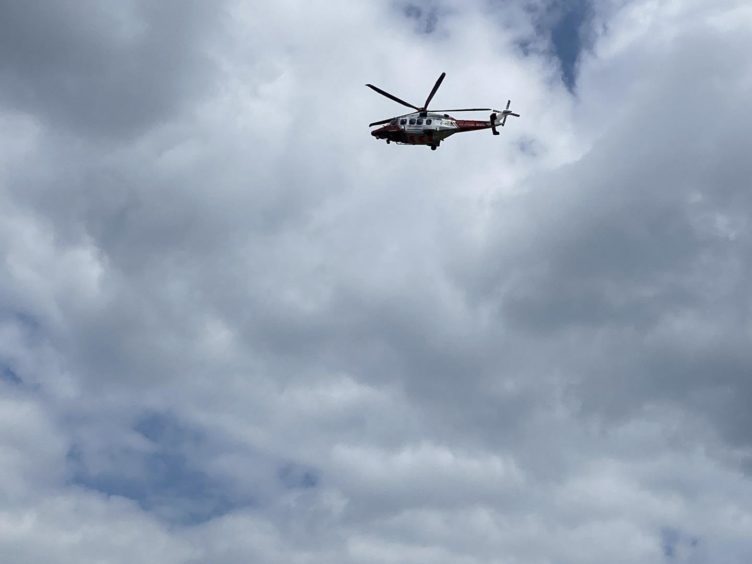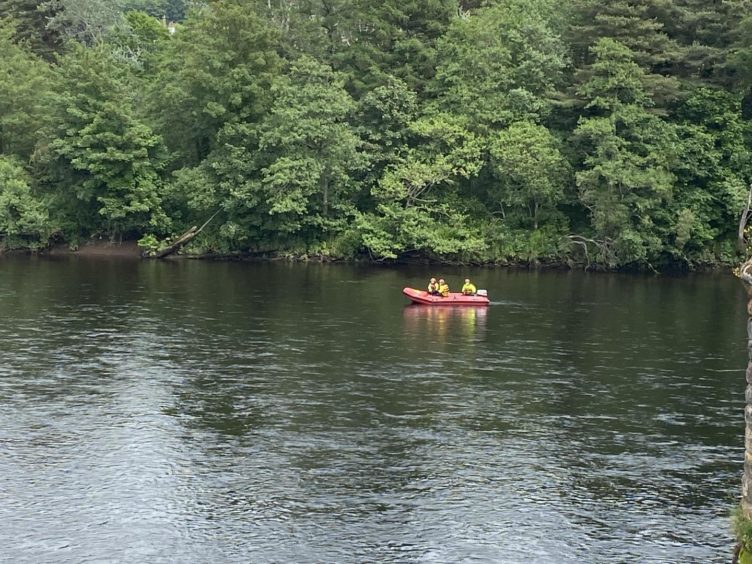A mystery distress beacon sparked a huge search and rescue operation on the River Tay in Perth.
Emergency crews were scrambled to the city’s Tay Street on Monday afternoon, after a personal locator device was activated at an unknown location in the area.
Rescuers lined the street while a coastguard helicopter circled above the river for about an hour.
Firefighters took to the water in rigid inflatable boats and carried out a slow-speed search of water under the railway bridge.
The alarm was raised just before 2pm. A coastguard spokesman confirmed that crews were responding to a personal locator beacon – the type used by kayakers – which had been activated.
He said that after two hours of searching, no trace of the beacon was found.
Crews were called back to base at around 4.30pm.
One onlooker said: “We were just out for a walk when the place suddenly filled with blue flashing lights.
“Then the helicopter started circling above the river. It came from the south and went up the river, then around Kinnoull Hill.
“Then it came back and stayed over part of the river for several minutes.”
He said: “I think everyone was just fearing the worst. There have been a few tragedies here in the past.”
Personal locator beacons – or PLB – are small electronic devices used to transmit alerts to potential rescue crews.
When activated, they sent out signals on radio frequencies. They are used throughout the world in the offshore industry, but are also used by kayakers and users of small boats.
A Police Scotland spokesman said: “We were made aware of a personal emergency beacon activated in an area close to the River Tay in Perth around 2.30pm on Monday.
“A thorough search of the area has been carried out by officers working with partners from HM Coastguard and the Scottish Fire and Rescue Service.”
He added: “Nothing has been found and we have no reports raising concern for any people in the area.
“It is possible this was a false alarm but further enquiries will be carried out to establish the full circumstances.
“Anybody with any information or concerns can call 101, quoting incident 1798 of 21 June.”
